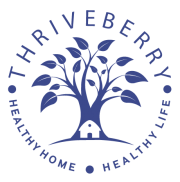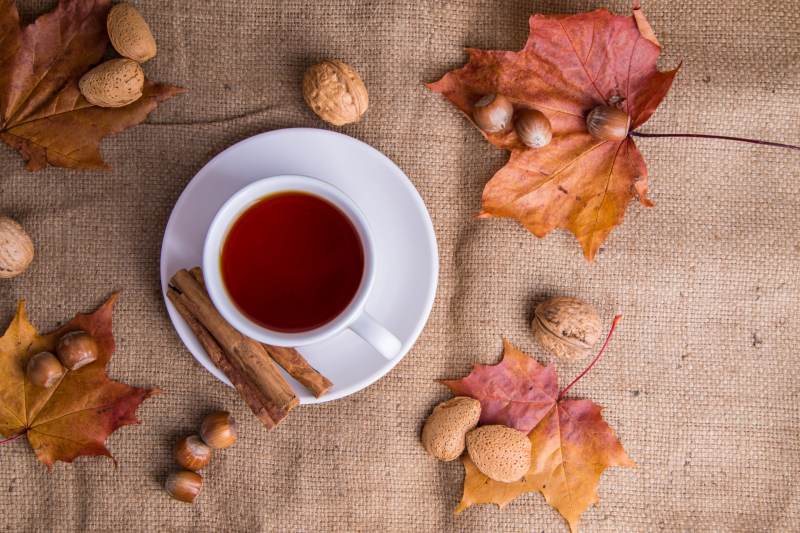By Maris Abelson
Many of us like to stay warm with cozy cups of tea all day long. Sadly, there is growing research that many teas contain high amounts of lead and fluoride.
A recent Canadian health study published in the Journal of Toxicology showed that every one of 30 different tea types contained lead, and most of those brewed over 15 minutes had lead levels “unsafe for consumption during pregnancy and lactation”. Even some of the organic teas tested highest for lead and arsenic. (Unfortunately, brand names were not published in that study.)
In an effort to find tea that is safe for my family, I reached out to some of the most natural tea companies out there, to see what measures they take to ensure they don’t sell tea with high amounts of fluoride, lead and other toxins.
I began with the big companies that I know already avoid GMOs, pesticides and toxic packaging. These are:
- Choice
- Equal Exchange
- Numi
- Organic India (Tulsi Tea)
- Rishi
- Stash
- Traditional Medicinals
- Yogi
HOW BAD GETS INTO THE GOOD
Clean tea is important. Since many teas are grown with rainwater alone, proximity to polluting industrial plants can result in toxic rainwater contaminating the plants, even if the soil is safe. For this reason, it is hard (but still possible) to find Chinese tea with low levels of lead.
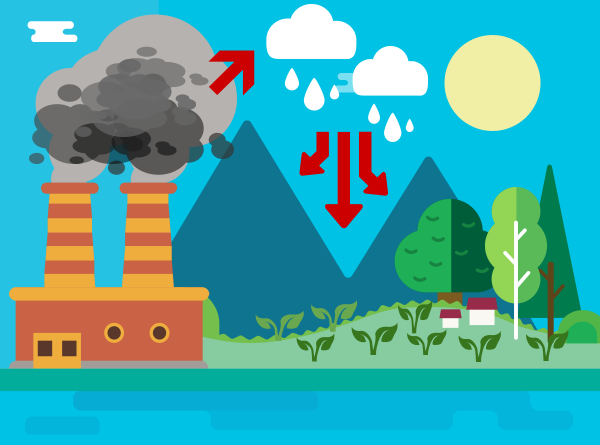
Rishi Tea, which sources from China, told us:
Unfortunately, even certified organic tea can be grown on land previously contaminated or exposed after harvest to pollution through nearby coal-burning factories. This is why for many years now, our search for organic tea at Rishi has taken us ever inland and higher in elevation in very rural China, to regions and districts that have never experienced heavy industry and are far too remote to be exposed to urban pollution. This past year and beginning this season, we have also taken upon us to develop and implement a testing program for our teas in China.
ISN’T FLUORIDE GOOD?
Ingesting too much fluoride can lead to dental or skeletal fluorosis (damage to bones). Many sources of tea can have high levels of fluoride from not only polluted rain and ground water, but from naturally occurring fluoride levels in local soil and water. Much of U.S. drinking water is fluoridated, so levels rise even higher when consumers brew tea from unfiltered tap water. Instant tea can also have high levels of fluoride, and there is even evidence that fluoridated water used in the process of decaffeinating tea is responsible for some instances of higher levels of fluoride in decaffeinated tea.
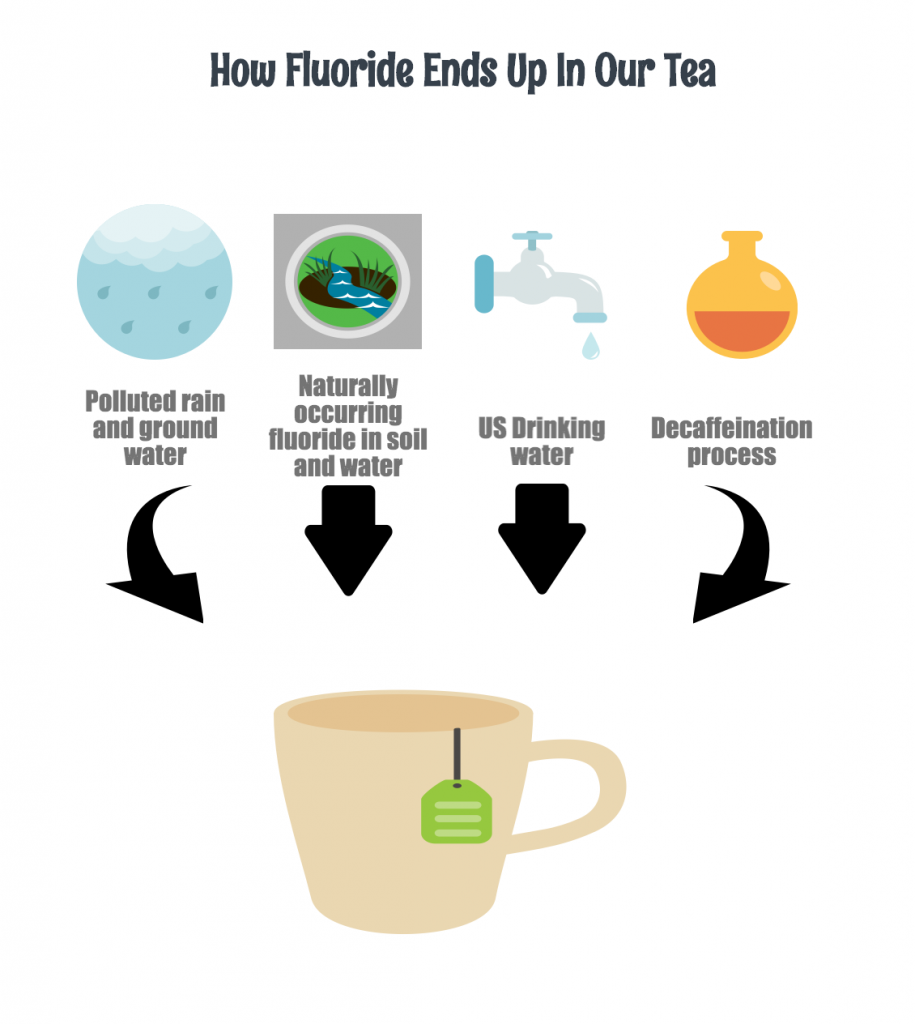
WHAT SHOULD I LOOK FOR?
Tea from young, spring leaves generally contains lower levels of fluoride than older, “brick” teas made from more mature leaves which then are packed into large blocks. Eden Sencha green tea is grown from spring leaves and is tested for fluoride.
Rishi, Eden, Stash and Choice are testing their Japanese teas for gamma radiation from the Fukushima meltdown. Choice Japanese tea is grown far away from Fukushima, and they’ve had the same supplier for over 35 years (yet to their credit, they still test for contamination).
One of the best things you can do to reduce toxins in tea is to switch brands of tea to a safer one. You can also try to avoid steeping the tea for long periods of time. Use filtered water to avoid fluoride from your local water supply, and avoid decaf tea. Herbal teas are great, and don’t have to go through the decaffeination process. Rooibos is a favorite that has a full, rich flavor similar to caffeinated teas.
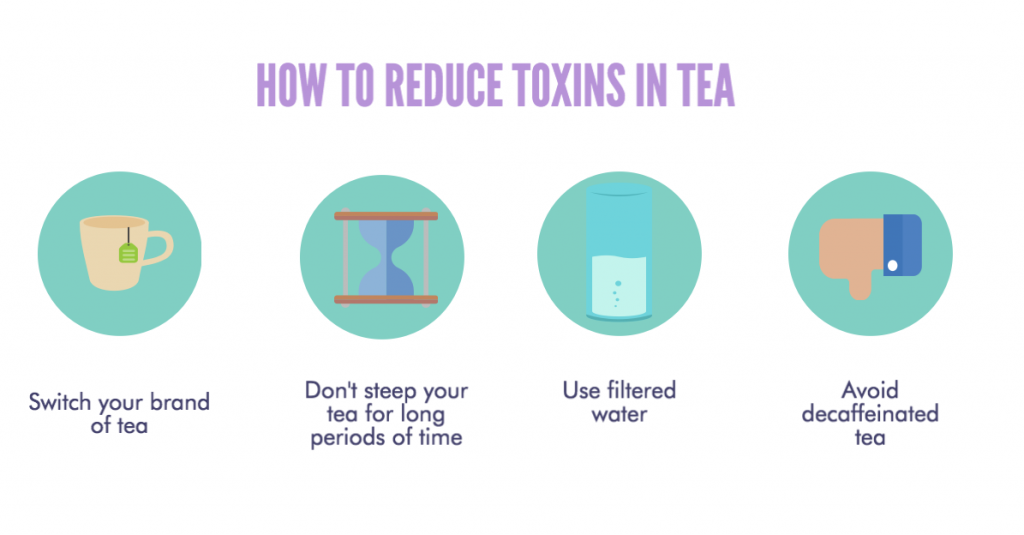
WHAT DO THEY SAY?
I’ve created a chart below from the responses I received from the tea companies who were very receptive to these types of questions. Seldom can we find something grown without any contaminants. However, the responses in this chart represent what tea companies are doing to ensure that contamination levels are little to none. Some of the brands carry non-organic teas as well, so when shopping, check the box for the organic symbol if you want to avoid pesticides.
Tea Company Table (check marks represent what these companies test for)
| CONTAMINANTS TESTED | Choice | Eden Organic | Equal Exchange | Numi | Organic India | Stash (organic) | Rishi | Traditional Medicinals | Yogi |
| Aluminum | ✓ | ||||||||
| Arsenic | ✓ | ✓ | ✓ | ✓ | ✓ | ||||
| Cadmium | ✓ | ✓ | ✓ | ✓ | ✓ | ✓ | |||
| Lead | ✓ | ✓ | ✓ | ✓ | ✓ | ✓ | |||
| Mercury | ✓ | ✓ | ✓ | ✓ | ✓ | ✓ | |||
| Fluoride | ✓ | ||||||||
| Gamma Radiation (in Japan) | ✓ | ✓ | ✓ | ✓ |
LOCAL CHOICES
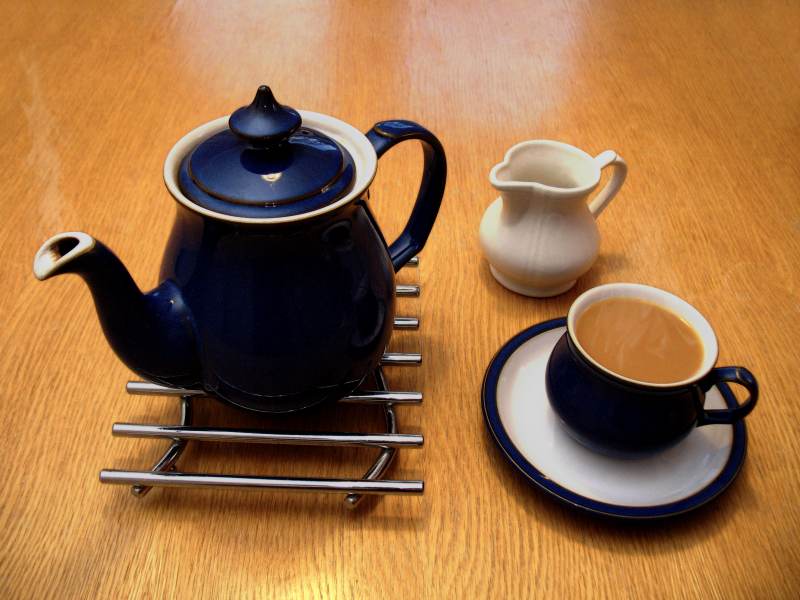
There are also some small, local growers who go to great lengths to have the most natural tea available. I’ve included some of them here:
Māmaki Native Hawaiian Herbal Tea (from Punaluʻu, Hawaiʻi). This is about the purest organic herbal tea you can find. It’s mostly watered by mountain rain but the ground water they do use, the company told us, is from a natural mountain reservoir: “From the stream, it creates deep underground wells which we get our water from. We have tested the plant’s surrounding soil multiple times ourselves for soil health and contaminants and we have found nothing that would be a hazardous concern.” The water is not fluoridated.
Cloudwater Tea (from Kīlauea, Hawaiʻi). Cloudwater’s herbicide and pesticide free tea is grown on the island of Kauaʻi. Their water comes from underground wells and is not fluoridated.
Light of Day Organics (from Michigan). Founded by an RN with a background in holistic health, Light of Day is a Demeter Biodynamic certified organic tea garden. They test for heavy metals and fluoride.
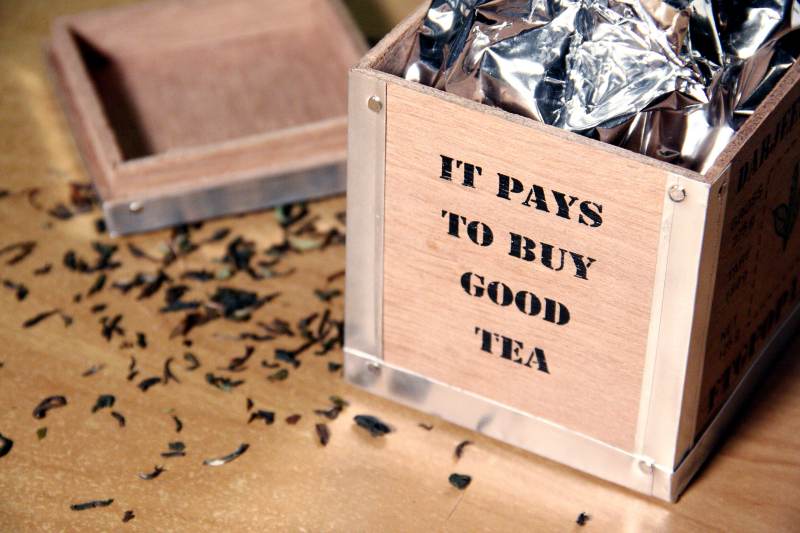
A note about packaging. Some organic teas use cornstarch based polylactic acid (PLA) fiber bags, and there have been some concerns about their capacity to leach into the tea. Rishi Tea uses GMO-free PLA tea bags as opposed to paper. Their testing has found their bags to be BPA and phthalate free.
STUDIES ON FLUOROSIS FROM TEA
